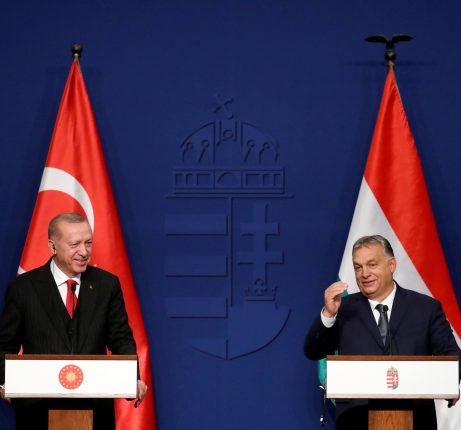Hungary blocks European oil embargo; Turkey opposes the entry of Finland and Sweden into NATO. How to deal with these transactional powers that oppose the unity yet necessary against Putin.
Viktor Orban and Recep Tayyip Erdogan are “consensus blockers”. They lead isolated battles that block major decisions: the Hungarian Prime Minister opposes a European decision that must be adopted unanimously, an oil embargo against Russia; while the Turkish President is blocking Sweden and Finland’s accession process to NATO.
These two countries are members of the Western authorities, Hungary and Turkey are part of NATO, and Hungary is also a member of the EU. Yet not only do they stand out from the broad consensus of their partners; but they conduct diplomacy that could be described as “transactional”, that is to say that they negotiate their rallying.
Their solitary opposition deprives Westerners of the image of unanimity that they had displayed since the start of the war in Ukraine. This unity is a force against Russia, which undoubtedly expected more divisions and reluctance in supporting Ukraine.
Orban and Erdogan have several things in common. They are both followers of what is called “illiberalism”, a more authoritarian democracy. They belong to the category known as “strong men”, who have flourished on all continents. Finally, they lead ancient empires that feel battered by history, and seek an influence worthy of their glorious past.
Each applies its power of nuisance to the file which interests it from a national point of view. Orban is the only one within the EU to assume his closeness to Vladimir Putin; and, if he allowed the previous sanctions packages to be adopted, he refuses to associate himself with the oil embargo. Especially since he himself is subject to European sanctions for his breaches of the rule of law.
Erdogan, for his part, places himself on a different register: before letting them enter NATO, he demands that Sweden and Finland cease their support for the Syrian Kurds, and deliver him around twenty Kurdish political refugees; he also has arms requests to the United States, blocked since he bought Russian equipment…
It is probably not up to the war context; but the two men know their power and will monetize it.
How can such problems be avoided? There are two scenarios: the first is the extension of the scope of decisions taken by majority and no longer by unanimity within the European Union. It’s on the table, and it could be one of the reforms brought about by the Ukrainian crisis, in order to speed up decision-making.
The second scenario is more complex. In the multipolar world which is emerging with difficulty, middle powers are emancipating themselves. This is the case of Turkey and other countries in the Middle East. We’ll have to get used to it, the alignment is no longer required, and that’s not a bad thing.
On the other hand, what poses a problem is when one is part of a “club” without respecting the rules. Hungary and Turkey, each with its own agenda, are clearly in this category: things will have to be clarified one day.


 23 May 2022
23 May 2022